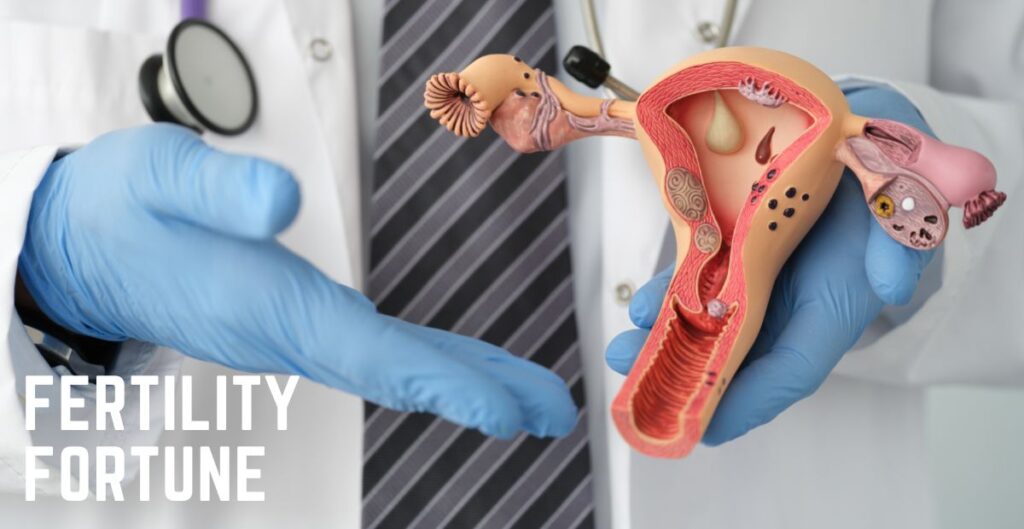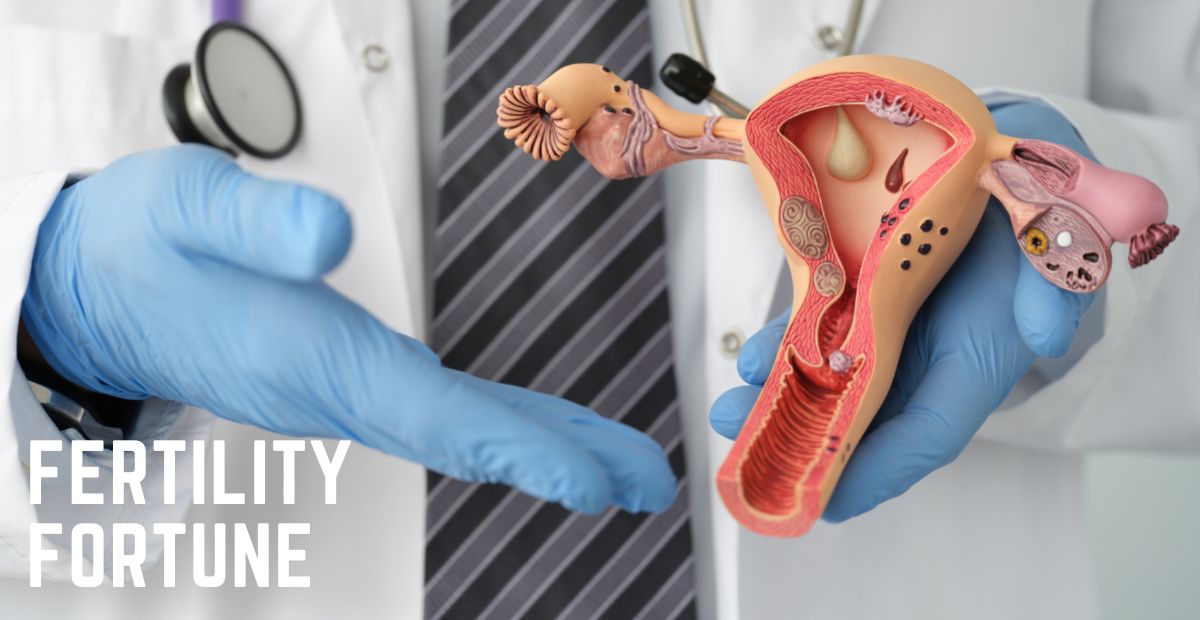
Can you get pregnant with a prolapsed uterus? Pregnancy can be an exciting yet often uncertain journey. If you’ve been diagnosed with a prolapsed uterus, you may be wondering how this health condition will impact your prospects of becoming pregnant and having a healthy pregnancy. In this article, we’ll discuss what a prolapsed uterus is, what causes it and how it can affect your pregnancy journey.
What is the prolapsed uterus?
A prolapsed uterus is a condition in which the uterus falls into or out of the vagina. The uterus is a pear-shaped organ that holds a baby during pregnancy. It is held in place by several muscles and ligaments. If these muscles and ligaments become weak, the uterus can slip out of position. Prolapse occurs when the uterus slips down into or protrudes from the vagina. In severe cases, it can extend outside of the body. The condition is most common after menopause, but it can happen at any age. Symptoms of prolapse include vaginal bleeding, discharge, or spotting; pelvic pain; urinary incontinence; difficulty urinating or having a bowel movement; and feeling like something is falling out of the vagina. Treatment depends on the severity of the prolapse and may involve lifestyle changes, such as avoiding heavy lifting or surgery to repair the muscles and ligaments.
Degrees of uterine prolapse
There are different degrees of uterine prolapse, depending on how far the uterus has slipped down into the pelvis.
Stage 1: The uterus is present in the upper half of the vagina
Stage 2: The uterus has descended nearly to the opening of the vagina.
Stage 3: The uterus protrudes out of the vagina.
Stage 4: The uterus is completely out of the vagina.
What causes a prolapsed uterus?
A prolapsed uterus is an uncommon condition in which the uterus (womb) falls down into or protrudes out of the vagina (birth canal). The major cause of a prolapsed uterus is weak pelvic floor muscles. These muscles support the uterus in place, and when they weaken, the uterus can slip out of position. Risk factors that result in the prolapsed uterus.
Obesity:
Obesity is thought to contribute to prolapse because excess weight puts extra pressure on the pelvic floor muscles and ligaments.
Pregnancy:
The added weight of the baby and the increased pressure on the pelvic floor can weaken the muscles and ligaments that support the uterus.
Advance age:
As a woman ages, her risk of developing uterine prolapse increases. This is because the pelvic floor muscles and connective tissues supporting the uterus weaken with age. Additionally, the ligaments that hold the uterus in place can stretch or tear.
Others:
conditions causing increased intra-abdominal pressure such as chronic constipation, cough, tumours in the pelvis and ascites ( fluid accumulation in the abdomen)
- In some cases, a prolapsed uterus is present at birth.
What are the signs and symptoms of a prolapsed uterus?
In some cases, a prolapsed uterus may cause no symptoms at all. However, in other cases, it can cause:
- Vaginal bleeding
- Discomfort during sex
- Difficulty emptying the bladder
- Difficulty in passing stool.
- Backache
- Feeling pressure in the pelvic area.
- Difficulty in walking
If you think that you may have a prolapsed uterus, it’s important to see your doctor for an evaluation.
How does a prolapsed uterus affect pregnancy?
A prolapsed uterus can cause problems with urination and bowel movements, as well as pain and discomfort. It can also make it difficult to become pregnant or carry a pregnancy to term. If you have a prolapsed uterus, your healthcare provider will likely recommend treatments that can help improve your symptoms and reduce the risk of complications. However, uterine prolapse may make it difficult for you to conceive naturally. Additionally, if the prolapse is severe enough to prolapse out of the vagina, then your chances of getting pregnant may be reduced. In most cases, a woman with a prolapsed uterus will still be able to have a normal vaginal birth, but there is a higher risk of complications such as uterine rupture or decreased blood flow to the baby. It is difficult to conceive naturally with a prolapsed uterus due to problems with sexual intercourse. In severe prolapsed cases, most of the sperms will flow out of the uterus and die when exposed to air and temperature. If you have a severe prolapse, your doctor may recommend delivering your baby by caesarean section.
Can you get pregnant with a prolapsed uterus?
While it is possible to get pregnant with a prolapsed uterus, it is important to note that this condition can make pregnancy and childbirth more difficult. The uterus is held in place by a number of ligaments and muscles, and when these are weakened or damaged, the uterus can start to sag or collapse. This can cause problems during pregnancy, as the extra weight of the growing baby can put a strain on the already weakened muscles and ligaments, potentially causing them to give way completely. This can lead to complications such as premature birth or even miscarriage. If you have a prolapsed uterus and are hoping to become pregnant, it is important to speak to your doctor first so that they can assess whether or not you are at increased risk of complications.
.
How to get pregnant with a prolapsed uterus?
Having a prolapsed uterus can make it difficult to get pregnant. The uterus is a pretty important organ when it comes to reproduction, so when it’s not in the right place, it can cause problems. There are a few things that you can do to raise your chances of getting pregnant if you have a prolapsed uterus, though.
- First, you should talk to your doctor. A doctor will be able to tell you if your prolapse is severe enough that it would impact your ability to get pregnant or carry a baby to term. If it is, they may recommend surgery to correct the problem. In some cases, a woman with a prolapsed uterus can still get pregnant without surgery, but it may be more difficult.
- There are also some things that you can do on your own to help improve your chances of getting pregnant. One is to make sure that you’re using lubricant during sex. This will help reduce friction and make sex more comfortable for both you and your partner. It will help in reducing the risk of tissue damage from too much friction.
- Another thing that you can do is use a position during sex that puts less pressure on your uterus. For example, lying on your back with your legs up in the air (called the missionary position) puts more pressure on the uterus than lying on your side does. So if you’re having trouble getting pregnant, try switching up your positions and see if that.
Treatment of prolapsed uterus?
Treatment for a prolapsed uterus depends on the severity of the condition. For mild prolapse, your doctor may recommend doing kegel exercises to strengthen the muscles that support the uterus and avoiding constipation by eating a high-fibre diet and drinking plenty of fluids. If your prolapse is more severe, you may need surgery to reposition the uterus or to support it with a mesh implant.
A prolapsed uterus can occur when the pelvic floor muscles and ligaments supporting the uterus weaken and stretch, causing the uterus to drop down into the vaginal canal. This can happen during pregnancy, especially as the baby grows and puts more pressure on the muscles and ligaments. A prolapsed uterus can also be caused by obesity, chronic cough, constipation, and heavy lifting. If you are suffering from a prolapsed uterus, you may not have any symptoms. However, some women may experience pain in the pelvic area, backache, difficulty urinating or having a bowel movement, or abnormal bleeding from the vagina. If your prolapsed uterus is severe, it can cause your cervix to dip into the opening of your vagina (known as cervical eversion), which can lead to pain during sex. If you have a prolapsed uterus, it’s important to see your doctor so they can monitor your condition. In some cases, a woman with a prolapsed uterus may need to be hospitalized for bed rest or surgery. If you have a milder form of prolapse, there are some things you can do at home to help relieve your symptoms, such as doing daily Kegel exercises to strengthen your pelvic floor muscles or avoiding constipation by eating a high-fibre diet and drinking plenty of fluids.
How to prevent a uterine prolapse?
There are some ways you can decrease the risk of developing uterine prolapse.
This Include:
- Using a high-fibre diet and drinking plenty of water helps in preventing constipation, which eventually reduces the risk of uterine prolapse.
- Avoiding strenuous work like heavy weight lifting prevents prolapse.
- Maintaining correct body postures while lifting.
- Chronic cough can be a cause of uterine prolapse treating or managing chronic cough can prevent prolapse.
- Shedding some extra pounds with a healthy diet and exercise can also be a good choice in uterine prolapse prevention.
- Estrogen replacement therapy for females with menopause can also helps.
- Performing kegel exercises helps in making your pelvic floor muscles strong.
YOU MAY ALSO LIKE:
Can polyps in uterus cause pain?
Can fibroids cause excessive hair growth?
How to strengthen uterus for pregnancy?
Why amniocentesis is important?
Exploring the Myomatous Uterus: A Comprehensive Guide

